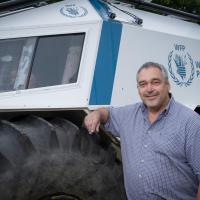The challenges of delivering humanitarian assistance in hazardous contexts can compromise the effectiveness of aid delivery and endanger the lives of employees at WFP and other humanitarian organizations.



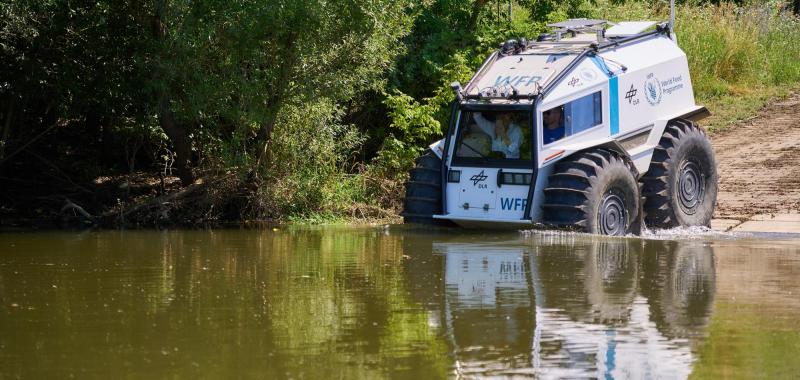
The AHEAD (autonomous humanitarian emergency aid devices) project aims to provide safe, efficient delivery of humanitarian assistance for humanitarian organisation operating in hazardous response contexts through semi-autonomous, tele-operated vehicles (All-Terrain-Vehicles, i.e. ATVs).
The challenges of delivering humanitarian assistance in hazardous contexts can compromise the effectiveness of aid delivery and endanger the lives of employees at WFP and other humanitarian organizations.
AHEAD, developed in collaboration with German Aerospace Center (DLR), aims to enhance last-mile delivery for WFP and other humanitarian organisations in disaster-stricken areas. By adding tele-operated capabilities to the all-terrain vehicles already in use by WFP in areas like South Sudan and Congo, AHEAD ensures safer delivery of food and supplies while reducing costs and environmental impacts.
This technology, successfully demonstrated in late 2022 and summer 2024 near Munich, Germany, effectively addresses security and health threats in hazardous environments, such as conflict zones (e.g. Sudan), mine fields (e.g. Syria, Yemen), flood situations (e.g. South Sudan, Mozambique) and ongoing medical emergencies (e.g. the Democratic Republic of the Congo).
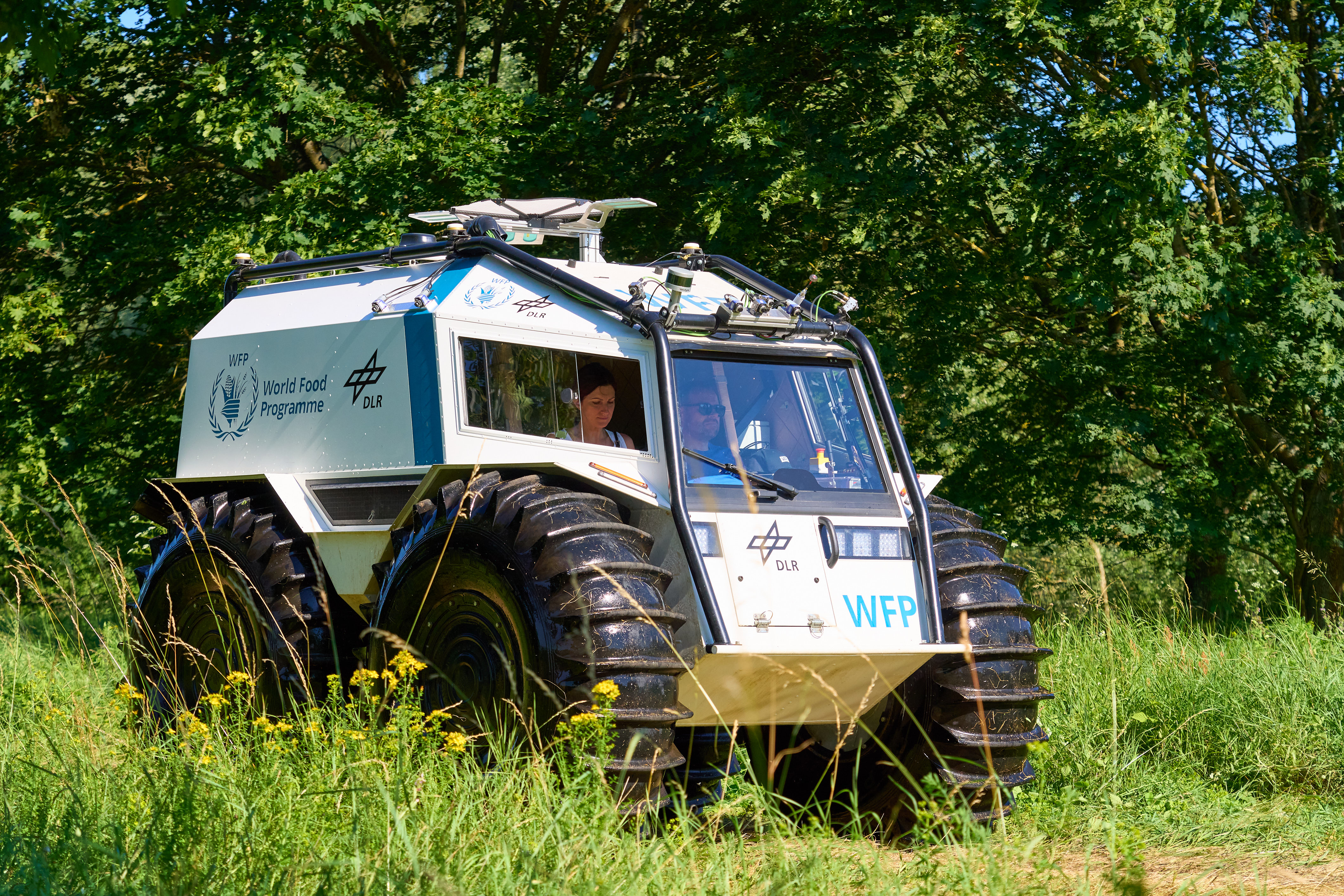
In June 2024, the AHEAD team reached a significant project milestone: For the first time ever, the team successfully tested the vehicle on land and in the water. In a demo scenario in the South of Germany, a team delivered a ration of WFP food to a remote island, crossing a large body of water. The vehicle was teleoperated by a driver in a local control center located about 500 meters away.
This is a major step in the development process of the tele-operated vehicle.
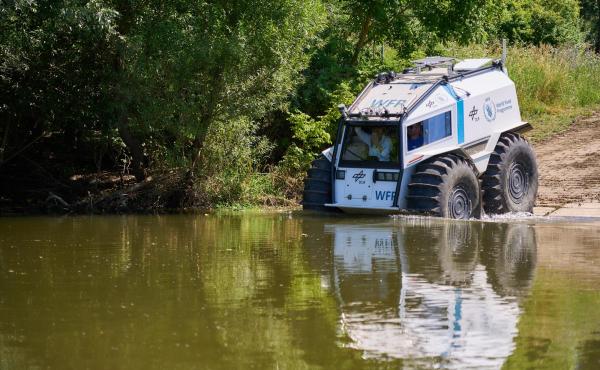
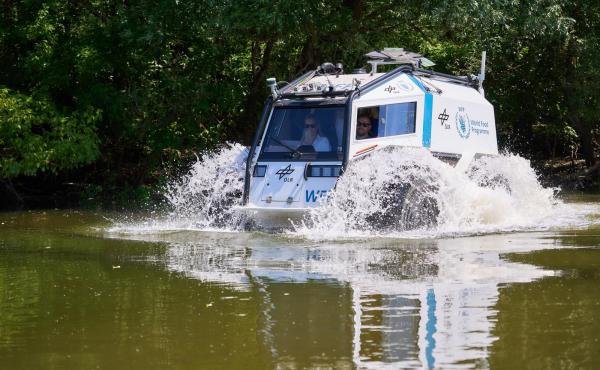

Field tests in Africa are planned in the next two to three years to validate AHEAD’s potential in overcoming challenges such as conflict zones, minefields, floods, and ongoing medical emergencies.




